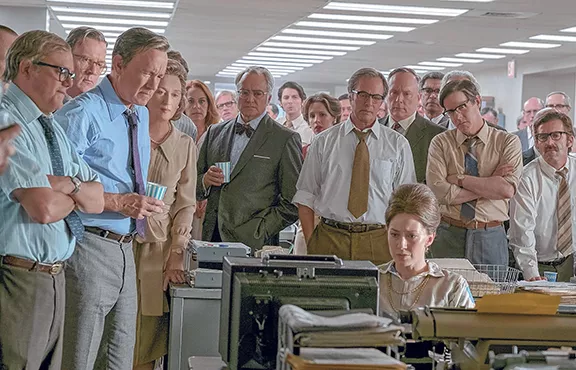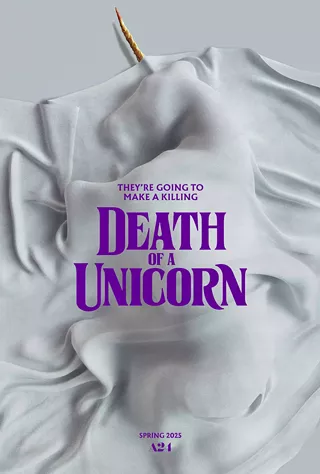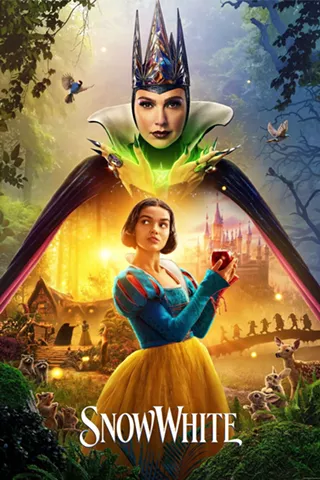Perhaps the most important journalistic battle in American history gets the Spielberg treatment in The Post, starring a stellar cast that includes Meryl Streep and Tom Hanks.
The film explores The Washington Post's decision to print the Pentagon Papers on Vietnam in 1971, a move that raised the ire of then President Richard Nixon, and put the careers of people like paper owner Kay Graham (Streep) and editor Ben Bradlee (Hanks) in major jeopardy. Hanks isn't the first movie star to play Bradlee. Jason Robards also played him in All the President's Men, the classic film that covered the Watergate scandal. Bradlee, who died in 2014, was a journalism giant.
The movie starts in 1966 with Daniel Ellsberg (Matthew Rhys), a member of the State Department doing a study for then-Secretary of Defense Robert McNamara (Bruce Greenwood), in South Vietnam. Embedded with American troops, Ellsberg sees all sorts of atrocities and is a firsthand witness to the growing failure of American participation in the Vietnam War. His forecast about the war's outcome is bleak, but McNamara and President Johnson (and three Presidents before him) share a rosier, false version with the American public where America is finding great success overseas.
In 1971, with Nixon now in The White House, Hanks and Streep get their first scene together in a restaurant having breakfast, discussing their big controversy of the day: The White House's meddling with their ability to cover the wedding of Nixon's daughter. Bradlee refuses to bend to Nixon's will to restrict a certain reporter, while Graham wonders what the big deal is. Their first scene begins with a long, dialogue rich take and it's basically a school in great acting.
Things progress from troubles with weddings to the war with the unauthorized release of the Pentagon Papers by Ellsberg, and The New York Times printing a story about them. This move gets the Times in trouble with the U.S. Attorney General and Nixon. Bradlee and his team come into contact with Ellsberg and get the opportunity to go through thousands of pages of classified documents. They have two options: Print a deeper story on the classified documents and face charges of treason, or bury the story to help preserve the paper, which is going through a public offering and might not benefit from such controversy.
History has told us what Graham, Bradlee and their team of reporters did, but that doesn't make The Post any less thrilling. Spielberg not only makes this an opportunity to put great actors in play, but makes The Post a grand testament to the golden age of printed journalism.
It's not just the risk taking of editors, owners and journalists that makes The Post such an absorbing piece of history. The mechanics of turning out a story to the masses in the '70s were, let's just say, a little complicated by today's standards. Journalists seeking leads with rotary and pay phones, and hard deadlines that had to be hit because it took a lot of time to actually publish a day's paper, play a big part in the storytelling.
Spielberg relishes the chance to show a story getting rolled up on typed paper, shot through an internal delivery system to an editor, have that editor go through the story with a pencil, and then have that story eventually placed on a costly template for publication. The sight of mass rolls of paper getting printed and bound for the streets amounts to one of Spielberg's more impressive technical feats in many filmmaking years.
The supporting cast includes Bob Odenkirk and David Cross, the legendary TV comedians of Mr. Show. It's a trip to see them on screen together in a Spielberg production. Tracy Letts, Bradley Whitford, Carrie Coon and Sarah Paulson round out the cast.
The Post is the best Spielberg offering since Munich, bringing to end one of the weaker stretches in his career that included the lackluster Lincoln, Bridge of Spies and The BFG. It's an impressively staged account of a pivotal moment in our history and, at a time where freedom of the press is actively being challenged by a sitting President, an important movie for the present and future.














